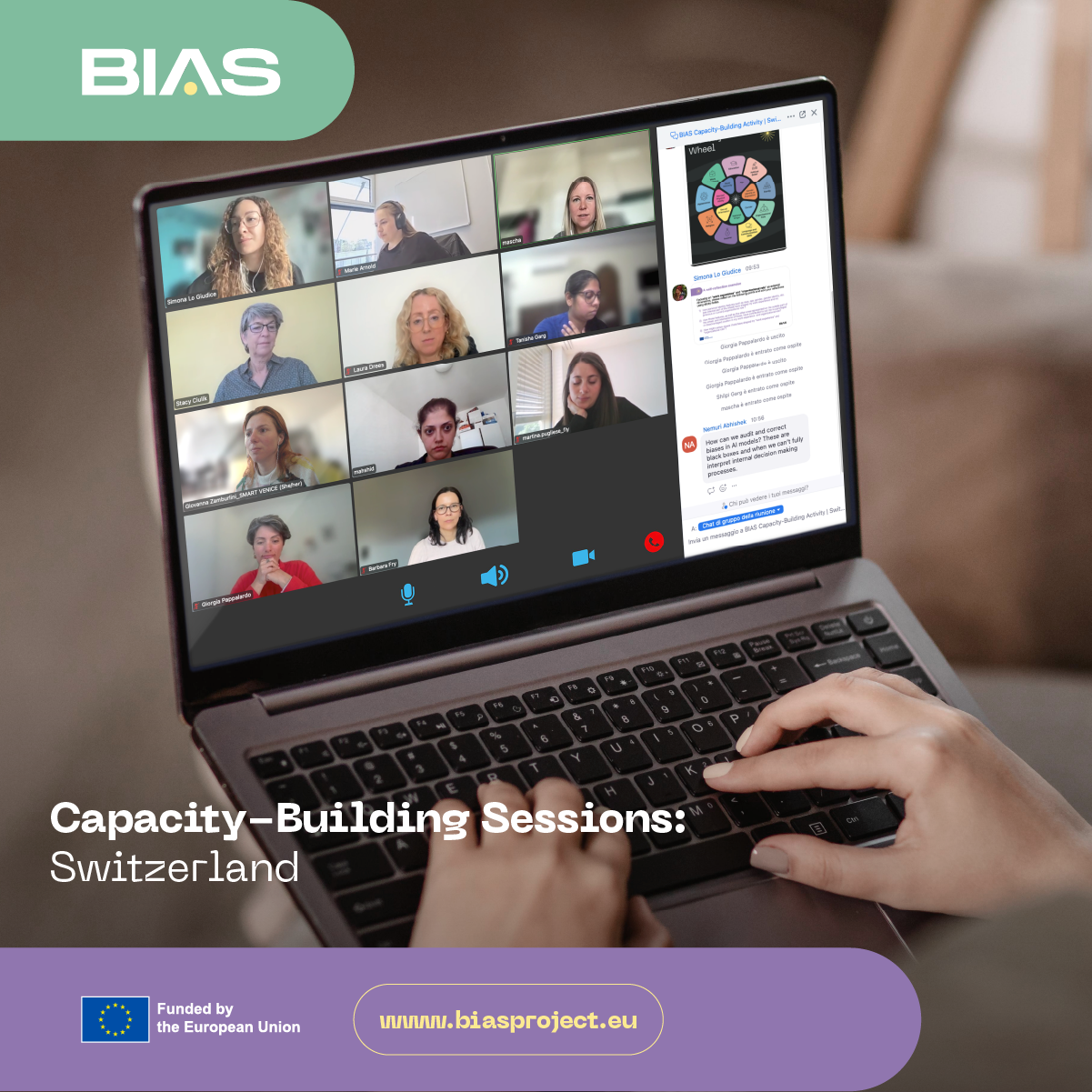9th May 2025
On 28th April, the BIAS project hosted an online training event, organized by Smart Venice, the BIAS partner in charge of designing the BIAS capacity-building programme, in collaboration with the Bern University of Applied Sciences.
The event targeted HR professionals, providing tools and knowledge on AI’s role in management and recruitment. We privileged the online format as an accessible option for busy professionals based in different countries. The invitation was spread towards the Swiss University, HR and Business community via emails and social media.
13 individuals attended the online training. Most attendees had not previously participated in a training with the same topics in the past, and had basic knowledge of AI applied to HR recruitment. In their learning expectation, participants indicated they were looking for concrete tools and models on how to critically assess AI tools, understand what fair models in the recruitment process are, and how to ensure customer data privacy while using such tools.
The attendees showed clear interest in the training sessions. They shared how their professional roles might be shaped by bias, with the help of the identity wheel tool provided by trainers. They also engaged in a simulation hands-on exercise, and actively tested potential biases recruiters may experience in the hiring processes by selecting a candidate from a pool of fictitious applications and comparing their choices with those made by the “AI Hiring Black Box” tool.
This was the opportunity to map out and compare, and be surprised at times, of different reasoning behind AI and human selections. From a training methodology perspective, the integration of human-machine interaction within training on AI for decision-making was crucial.
Additionally, the training included lecture-style sessions, dedicated to explaining the concept of bias framed within the context of AI, the ethical and social implications of AI in management, along with an overview of policy frameworks.
Most participants expressed satisfaction with the online training, particularly with the hands-on exercise and interactive components. There remains a strong appetite for concrete tools that can help reduce biases throughout the recruitment process. We hope that the BIAS project and its forthcoming bias-mitigation tools will make a meaningful contribution to meeting this expectation!
Despite the challenges of online participation, the event successfully introduced AI’s potential in the field. A second session should be taking place between October and December 2025. Stay tuned!
